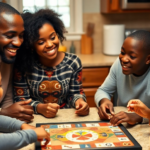The Myth of Homeschool Socialization: A Journey and Exploration
In 2005, I found myself at an exciting intersection of education and opportunity in Williamson County, TN, where I began offering college admissions counseling to homeschooled students. At the time, many parents opted for homeschool because their children were pre-professional athletes, accelerated learners, or they wished to avoid the constraints of the Common Core curriculum. These diverse motivations opened my eyes to the vast potential of homeschool education and its ability to cater to unique learning journeys.
While working with these families, I was also co-homeschooling my niece, nephew, and their friends using a blend of hybrid, worldschooling, and classical methods. This immersive experience allowed me to engage deeply with the expectations of local colleges and universities in Nashville, famously known as the “Athens of the South.”
Through this journey, I saw firsthand that homeschool socialization was not only possible but thriving.

Our group participated in a rich array of social activities: music classes at Belmont University, golf lessons with First Tee, Bible Bowl competitions through the AME church, bowling leagues, junior senate sessions, and more. Their calendars were filled with proms, debutante events, and homecoming dances from various schools.
Graduation and birthday parties were lively gatherings that mirrored the conventional social experiences of any student. Now that they are in their 30s, I can confidently say their socialization never suffered. Fast forward two decades, and technology has further expanded these opportunities for my own children.
However, misconceptions about homeschool socialization persist. Some see homeschooling as isolating, questioning what homeschooled children might lack or be shielded from. Part of this resistance stems from outdated beliefs that enduring bullying builds character—a dangerous idea that fails to address modern challenges like digital bullying.
Other naysayers may be uncomfortable with divergence, instinctively attacking what is different due to societal expectations. Even still, I personally believe that persistent skepticism on home education is a reflection of low self-esteem or restrictions those adults endured in their childhood.
Let’s explore some facts that dispel these myths and highlight how a premium home education can foster robust socialization:
Historical Context and Psychological Research
- Historical Context: Homeschooling has a long-standing tradition in America, dating back to colonial times when formal schools were scarce. Community-based learning was the norm, emphasizing social interactions rooted in family and community life.
- Psychological Research: Studies consistently show that homeschooled children are well-adjusted socially, often outperforming their traditionally schooled peers in measures of self-esteem and emotional stability. Research highlights their ability to form strong peer relationships and navigate diverse social settings.
Social Activities Through Third-Party Legacy Spaces
- Libraries: Libraries offer a wealth of programs—book clubs, workshops, and reading circles—that provide social interaction while fostering a love of learning.
- Parks and Recreation Departments: These departments host sports leagues, nature walks, and community events that encourage teamwork and physical activity.
- Public Works Departments: Offering volunteer opportunities and community service projects, public works departments provide valuable experiences that teach responsibility and civic engagement.
- Research Institutions: Many institutions offer educational programs and science fairs where homeschooled students can interact with peers who share their interests and passions.

The Importance of Cultural Competency in Homeschool Socialization
In the realm of homeschool education, the decision to limit socialization is often misunderstood by those outside the community. However, for many families, particularly those from diverse backgrounds, this choice is deeply rooted in the desire to provide a culturally competent environment for their children.
As an African American parent, I have witnessed firsthand the challenges of being the ‘only one’ in various settings. Whether it’s my sons, who shine as award-winning string musicians, orators, and dancers, or other families facing similar circumstances, the need to shield them from microaggressions and cultivate a supportive network is paramount.
My husband and I go to great lengths to surround our sons with mentors and friends who appreciate and respect their cultural identity. This protective approach is not about isolation but about fostering a nurturing environment where they can thrive without the burden of being tokenized or misunderstood. Many African American, Jewish, and secular parents share this sentiment, seeking spaces where their children can grow surrounded by those who understand and value their unique experiences.
This desire for cultural competency extends beyond race and ethnicity. In my two decades of educational consultations, I’ve encountered parents who are the only Bahá’í, Jewish, Muslim, secular, single-parent, part of a same-sex union, or raising neurodivergent children. These parents are often the subject of “kitchen table” discussions, where traditional homeschool parents- mostly identifying as Christian- teach their children how to ‘deal with the difference’ of others- but not in an affirming or inclusive way.
Often, the discussions perpetuate exclusion or teach cold-hearted judgments that fail to respect diverse choices and circumstances. How do I know this? Having sat at those kitchen tables as a trusted professional, I’ve heard the sentiments and the family of disc.
As a parent, I understand the sting of being the topic of discussion as an outsider. I’ve had some homeschool mothers outright declare, “I don’t care about connecting with others, as long as my child is happy.” When this sentiment reveals itself, I know that they were likely shunned for choosing their path, and they are mentally exhausted from trying to ‘fit in’.
It is disturbing that even the homeschool communities that advocate for individual choice can diminish other non-conforming families, rather than embracing them for their individuality.
It’s no secret that many homeschool groups require an attestation of faith, which it difficult for secular homeschool families. You can imagine that even in my position as an ordained minister, my support for extending premium home education to non-Christian families has excluded me from several circles. No doubt I’ve been the topic of discussion in several homes!

These types of experiences fuel my initiatives like ATHENS Edu—a program designed to empower parents to create a premium home education tailored to their family’s needs- regardless of faith, ethnicity, or creed. By equipping families with the tools and resources necessary to build an education they can be proud of, we can ensure that children grow up in environments where they are respected and celebrated for who they are called to be.
As we continue to advocate for personalized learning journeys, it’s essential to recognize that homeschooling is not a one-size-fits-all solution. Each family’s choice is shaped by their unique cultural, religious, and personal needs. Respecting these decisions begins with understanding and empathy—qualities that every community should strive to cultivate. So before passing judgment on how others socialize their children, it’s crucial to acknowledge the rich tapestry of motivations that drive these choices and honor them with the respect they deserve.
By embracing these diverse avenues for social interaction, homeschoolers can enjoy enriching social experiences that build both independence and academic skills. The myth that homeschool socialization suffers is just that—a myth. The reality is that a premium home education provides ample opportunities for meaningful connections and personal growth.
That just may look different for everyone. And that’s okay.









Leave a Reply